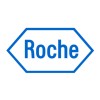Filter interviews by
R L Fine Chem Interview Questions and Answers
12 Interview questions
Effectively managing shift casuals involves clear communication, training, and fostering a positive work environment.
Establish clear expectations: Clearly outline roles and responsibilities for shift casuals to avoid confusion.
Provide training: Offer comprehensive training sessions to ensure casuals understand procedures and protocols.
Encourage open communication: Create an environment where casuals feel comfortab...
Power number is a dimensionless number used in fluid mechanics to characterize the ratio of inertial forces to viscous forces in a fluid flow.
Power number is used to determine the efficiency of mixing in agitated tanks.
It is calculated as the ratio of the power input to the fluid by the agitator to the product of the fluid density, impeller speed, and impeller diameter.
A high power number indicates a more vigorous...
Specific heat is the amount of heat required to raise the temperature of a unit mass of a substance by one degree Celsius.
Specific heat is a physical property of a substance.
It is measured in J/kg°C or cal/g°C.
Different substances have different specific heat values.
Water has a high specific heat, which is why it is used to regulate temperature in living organisms.
Metals generally have lower specific heat compared...
Filtration rate is the rate at which a substance passes through a filter or membrane.
Filtration rate is commonly used in industries such as water treatment, pharmaceuticals, and food processing.
It is measured in units such as liters per hour or gallons per minute.
Higher filtration rates indicate faster flow of substances through the filter.
For example, a water filtration system may have a filtration rate of 10 lit...
The contents of a process validation protocol and report include detailed information about the validation process and its results.
Purpose and scope of the validation
Description of the process being validated
Validation criteria and acceptance criteria
Methods and procedures used for validation
Sampling plan and sample size
Data collection and analysis
Results and conclusions
Recommendations for process improvements
Sign...
Audits should be handled with proper planning, preparation, and communication.
Create a checklist of all the necessary documents and information required for the audit.
Ensure that all employees are aware of the audit and their roles in the process.
Designate a point person to communicate with the auditor and coordinate the audit process.
Be transparent and honest with the auditor, providing accurate information and a...
Total plant heat load is evaluated by considering all the heat sources and sinks in the plant.
Identify all the heat sources and sinks in the plant
Calculate the heat generated by each source
Determine the heat absorbed by each sink
Sum up all the heat generated and subtract the heat absorbed to get the total plant heat load
Consider factors like ambient temperature, humidity, and insulation in the calculation
Yes, I am familiar with refrigeration systems.
I have knowledge of the basic principles of refrigeration and the components involved.
I am familiar with different types of refrigerants and their properties.
I have experience in troubleshooting and repairing refrigeration systems.
I am aware of safety precautions and regulations related to refrigeration systems.
I have worked with various types of refrigeration systems ...
Yes, there are various types of reactors and their maintenance depends on the type.
Types of reactors include batch, continuous stirred tank, plug flow, and fluidized bed reactors
Maintenance can include cleaning, replacing parts, and monitoring performance
For example, in a fluidized bed reactor, maintenance may involve replacing the bed material and monitoring gas flow
Regular maintenance is important to ensure safe...
IBR and non IBR boilers are two types of boilers used in industries.
IBR stands for Indian Boiler Regulations, which are a set of regulations governing the design, construction, and operation of boilers in India.
IBR boilers are certified by the Indian government and must adhere to strict regulations, while non IBR boilers do not require certification.
IBR boilers are generally used in industries where steam is requi...
R L Fine Chem Interview Experiences
16 interviews found
I appeared for an interview in May 2025, where I was asked the following questions.
- Q1. Good manufacturing practice
- Q2. Process cleaning
- Q3. Principle of ALCOA
I appeared for an interview in Feb 2025, where I was asked the following questions.
- Q1. What were your roles and responsibilities in your previous company?
- Ans.
In my previous role, I focused on ensuring compliance with EHS regulations and promoting a safe work environment.
Conducted regular safety audits to identify potential hazards and ensure compliance with safety regulations.
Developed and implemented training programs for employees on EHS best practices, resulting in a 20% reduction in workplace incidents.
Collaborated with cross-functional teams to assess and mitigate envi...
- Q2. What kind of skills do you possess?
- Ans.
I possess strong analytical, communication, and problem-solving skills, essential for effective EHS management.
Analytical Skills: I can assess risks and identify hazards through data analysis and field observations.
Communication: I effectively convey safety protocols and training to diverse teams, ensuring understanding and compliance.
Problem-Solving: I have experience in developing and implementing corrective actions ...
I applied via Naukri.com and was interviewed in Jan 2024. There was 1 interview round.
(5 Questions)
- Q1. What is Power number
- Ans.
Power number is a dimensionless number used in fluid mechanics to characterize the ratio of inertial forces to viscous forces in a fluid flow.
Power number is used to determine the efficiency of mixing in agitated tanks.
It is calculated as the ratio of the power input to the fluid by the agitator to the product of the fluid density, impeller speed, and impeller diameter.
A high power number indicates a more vigorous mixi...
- Q2. What is filtration rate
- Ans.
Filtration rate is the rate at which a substance passes through a filter or membrane.
Filtration rate is commonly used in industries such as water treatment, pharmaceuticals, and food processing.
It is measured in units such as liters per hour or gallons per minute.
Higher filtration rates indicate faster flow of substances through the filter.
For example, a water filtration system may have a filtration rate of 10 liters p...
- Q3. Distillation rate calculation
- Ans.
Distillation rate calculation involves determining the amount of material distilled over a certain period of time.
Distillation rate is typically measured in units of mass or volume per unit time.
It can be calculated by dividing the amount of material distilled by the time taken.
For example, if 100 grams of a substance is distilled in 1 hour, the distillation rate would be 100 g/hr.
- Q4. Heat exchanger design
- Ans.
Heat exchanger design involves selecting the appropriate type, size, and materials to efficiently transfer heat between two fluids.
Consider the type of heat exchanger needed (e.g. shell and tube, plate heat exchanger)
Calculate the required heat transfer area based on heat load and temperature difference
Select materials compatible with the fluids and operating conditions
Optimize flow rates and configurations for maximum...
- Q5. What is specific heat
- Ans.
Specific heat is the amount of heat required to raise the temperature of a unit mass of a substance by one degree Celsius.
Specific heat is a physical property of a substance.
It is measured in J/kg°C or cal/g°C.
Different substances have different specific heat values.
Water has a high specific heat, which is why it is used to regulate temperature in living organisms.
Metals generally have lower specific heat compared to w...
I appeared for an interview in Oct 2024, where I was asked the following questions.
- Q1. How to Handle the Shift Casuals
- Ans.
Effectively managing shift casuals involves clear communication, training, and fostering a positive work environment.
Establish clear expectations: Clearly outline roles and responsibilities for shift casuals to avoid confusion.
Provide training: Offer comprehensive training sessions to ensure casuals understand procedures and protocols.
Encourage open communication: Create an environment where casuals feel comfortable as...
- Q2. Do you join us our Company...?
I appeared for an interview before May 2024, where I was asked the following questions.
- Q1. NMR ir and mass
- Q2. Mechanism and reaction scheme
I appeared for an interview before Jan 2024.
(2 Questions)
- Q1. About salary and Experience
- Q2. Relocation
I applied via Walk-in
(2 Questions)
- Q1. What about u job responsibilities in your working area
- Q2. Explain about you r self
Interview Preparation Tips
Interview Questionnaire
4 Questions
- Q1. How many Months you will be ready to work in this organization?
- Q2. How much pressure you will ready to take?
- Q3. After 6 months we will not give you confirmation letter and are yoy okay for this?
- Q4. We can remove at any time then what is your opinion for this?
Interview Preparation Tips
But after one month I have come to know that this position was for only document purpose not for work wise. Not required for projects work and maintenance. This is very bad experience in my life. Production VP is only involving and he only decided all Maintenance & projects work and exucuted by civil Junior person including equipment/Installation/pipe line/civil etc. No paper responsibility for the Head Engg and they are not allowed to do the work. In project area no drawings, no proper specifications and no proper documents to do the work. All are Ghupup works only. Very Very BAD.
Such a worst experience got in my life and Insecure feeling inside the site. This is like TALIBAN Rules. "Any thing can be Happned at Any Time"
Two persons are ruleing this organization and others are dram artist and Dummy.
No proper rules or proper facilities made. It is one of the future less organization in API sector.
If any body wants to join this organization please think once more and if you don't have job in your hand then you can go & join. But you should be change within 6 months other wise they will send you without reasons.
RLFC founder Mr.Anjan Roy was good in Administration and good Human being. After He was sold to some Pharma investers after this organization become one of the hell in the API field.
I should strongly recommending to new joiners No one should not join for above asst Manager level. No JOB SECURITY and NO RESPECT.
I applied via Naukri.com and was interviewed in Oct 2021. There were 3 interview rounds.

(2 Questions)
- Q1. Tell me your job experience
- Q2. Why you are changing the job
(4 Questions)
- Q1. What are your salary expectations?
- Q2. Tell me about yourself.
- Q3. Why are you looking for a change?
- Q4. Why you chose this field
Interview Preparation Tips
(5 Questions)
- Q1. What are your strengths and weaknesses?
- Q2. Why should we hire you?
- Q3. Share details of your previous job.
- Q4. What are your salary expectations?
- Q5. Tell me about yourself.
Top trending discussions






R L Fine Chem Interview FAQs
The duration of R L Fine Chem interview process can vary, but typically it takes about less than 2 weeks to complete.
Tell us how to improve this page.
R L Fine Chem Interviews By Designations
- R L Fine Chem Senior Officer Interview Questions
- R L Fine Chem Research Associate Interview Questions
- R L Fine Chem Assistant Manager/Manager -(Technical) Interview Questions
- R L Fine Chem Senior Executive QA Interview Questions
- R L Fine Chem Process Engineer Interview Questions
- R L Fine Chem Junior Officer Interview Questions
- R L Fine Chem Officer Interview Questions
- R L Fine Chem Senior Executive Interview Questions
- Show more
Interview Questions for Popular Designations
Overall Interview Experience Rating
based on 22 interview experiences
Difficulty level
Duration
Interview Questions from Similar Companies
R L Fine Chem Reviews and Ratings
based on 256 reviews
Rating in categories
|
Officer
110
salaries
| ₹2 L/yr - ₹4.3 L/yr |
|
Senior Executive
95
salaries
| ₹4.6 L/yr - ₹8.9 L/yr |
|
Junior Officer
79
salaries
| ₹2.2 L/yr - ₹3.5 L/yr |
|
Production Officer
77
salaries
| ₹2.2 L/yr - ₹3.6 L/yr |
|
Executive
58
salaries
| ₹3.8 L/yr - ₹6.8 L/yr |

Apotex Research

Encube Ethicals

Metrochem Api

Synokem Pharmaceuticals
- Home >
- Interviews >
- R L Fine Chem Interview Questions













